| If you can't view the email, please click here. |
|
|
|
Summer 2019 Vol. 18 No. 2
|
|
From the TPQ Team
With this Summer 2019 issue—the publication’s 70th—we are proud to present our readers with TPQ 2.0. Over the past 18 years, Turkish Policy Quarterly (TPQ) has established itself as a trusted and independent source of analysis on Turkey and its neighborhood, and at the forefront of media outlets that drive debate and push the boundaries of discussion in the country. In recent years, the journal has expanded its editorial scope to adopt a more global outlook, exploring topics such as cybersecurity, social and economic innovation, global finance and trade, energy and the environment, and the role of women in global security. TPQ 2.0 will build upon the continuity of the Turkish Policy Quarterly brand while reflecting the journal’s transformation.
|
|
|
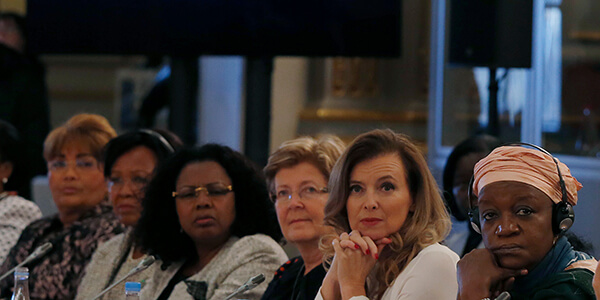 |
Women’s Piece of Security
Clare Hutchinson
“The adoption of United Nations Security Council Resolution (UNSCR) 1325 in 2000 on Women, Peace and Security (WPS) presaged a new global thinking about peace and security, and situated women’s rights at the center of international security dialogue for the first time. The standard normative practice in addressing armed conflict and its aftermath only remained as a framework of the late 90s but is considered a revolutionary approach to the conceptualization of peace and security.”
“The adoption of the UNSCR 1325 represented a significant political shift for NATO, as it addressed women’s experiences and roles in conflict and peacemaking as a matter of international peace and security. The Alliance has long held the principles of WPS as an innate element of NATO’s core tasks. Since the adoption of the first NATO policy on Women, Peace and Security in 2007, the Alliance has anchored its gender and security framework in efforts on collective defense, cooperative security, and crisis management.”
|
|
|
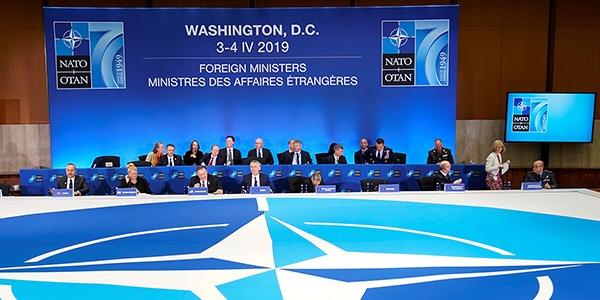 |
NATO At 70: How Trump Has Strengthened the Alliance
Charles A. Kupchan
“NATO is entering its eighth decade in quite good health because it succeeds admirably in advancing the shared interests of its members. Russian aggression in Ukraine has brought back into focus NATO’s traditional mission of territorial defense. At its 2016 summit, NATO took the prudent step of deploying combat-ready battalions in Estonia, Latvia, Lithuania, and Poland. The United States has augmented its presence on the eastern flank, and the Trump administration has agreed to increase spending on European defense and deploy additional US troops on the continent. At its 2018 Summit, NATO established two new commands to enhance the security of maritime connections between North America and Europe as well as improved force mobility within Europe.”
“Trump’s hostile attitude toward NATO, along with his “America First” approach to statecraft, are admittedly taking a serious toll on transatlantic solidarity. European confidence in American leadership has plunged during Trump’s watch; some 70 percent of Europeans lack confidence in the president’s handling of world affairs. Even if Trump is a one-term president and his successor seeks to restore Atlantic comity, Europeans will justifiably question whether they have a reliable and steady ally in the United States.”
|
|
|
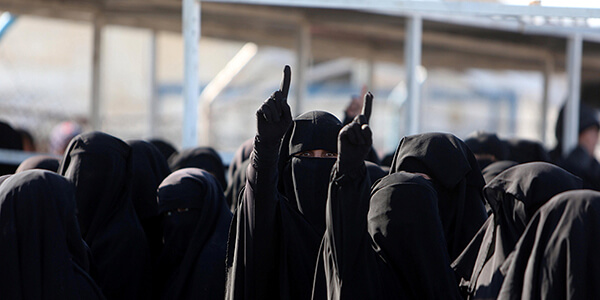 |
Return of Women from ISIS Controlled Territory: The Challenge for Turkey
Sabine Freizer
“ISIS’s demise has left neighboring countries, including Turkey, with new and complex challenges, including what to do with thousands of foreign women and children who lived under the group. Many Western countries are refusing to engage with these women and children who remain today in Syria and Iraq. This is likely to increase the threat that they pose to their home countries and the states they travel through. Few governments have developed comprehensive policies and programs that consider women’s critical roles as preventers, supporters, perpetrators, and victims of violent extremism. The UN Security Council’s call in 2015 (Resolution 2242) encourages states to consider women’s role in perpetrating and preventing violent extremism and to include women and women organizations in efforts to prevent and counter violent extremism.”
“The global war against terror has been heralded as an effort shared by a vast majority of countries. Two years ago, few would have imagined how swiftly ISIS would lose control and how quickly its threat would transform from being overt to covert. However, as a consequence of the victory over ISIS, there is a massive number of displaced people, including ISIS victims and supporters. The combat against ISIS will not be totally successful until both sides return to their homes. The return, reintegration, and prosecution of the men and women who chose to live under ISIS requires an international effort no smaller than the prevention of violent extremism. With a 900 kilometer border with Iraq and Syria, Turkey is on the frontline of this post-ISIS effort”
|
|
|
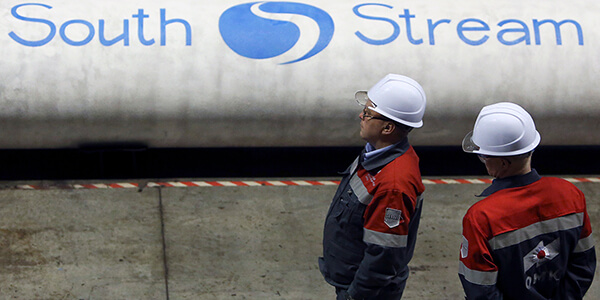 |
The Evolving Russian Challenge to EU Energy Security
Pavel K.Baev
“Russia’s prudent behavior in the European energy markets does not mean that the prospect of “weaponizing” gas flows has disappeared. In fact, Kremlin has an unshakable confidence in the value of the supplies under its control and could instantly resort to interrupting the export deliveries intended for its European customers as political expediency dictates. What Russia needs for this threat to be efficacious is to stimulate the dependency of some European states, particularly Germany and Austria, on pipeline-delivered Russian gas by making it cost-competitive. Instead, what Russia is actually doing is constructing new high-cost pipelines ? which does not help it grow in the increasingly competitive European market.”
“Russia is set to remain a major energy and natural gas supplier to Europe, but its ability to instrumentalize and even “weaponize” this business in the evolving confrontation with the West is far from certain. The opening of new export channels to China does not increase this ability. Furthermore, Russia’s positions in the global energy markets have the prospect of weakening due to the arrival of many new suppliers with lower production costs. Russia’s unreliability as a key supplier may be caused not only by ulterior political motives but also by technical failures caused by the mixture of corruption, incompetence, and physical deterioration of its main infrastructure.”
|
|
|
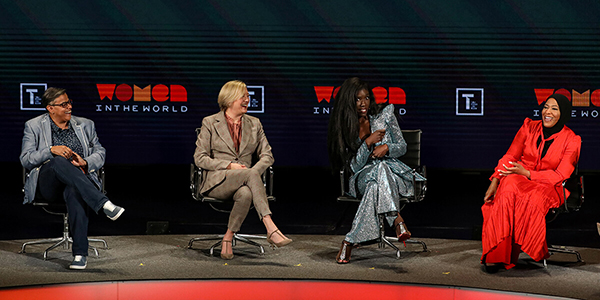 |
Women, Peace and Security Agenda: A Roadmap for Turkey
Zeynep Alemdar
“UNSCR 1325 provides a comprehensive framework that improves women’s engagement in society, protects and promotes the rights of women and girls, and prevents violence against women and girls. For instance, it recommends an increase in women’s participation at all levels of decision-making in national, regional, and international institutions as mediators, partners, leaders in peace negotiations, and as soldiers, police, and civilians in peace operations.”
“UNSCR 1325 provides a frame to improve women’s well-being before, during, and after a conflict. Soldiers who have seen wars argue that no one can desire peace more than them. Therefore, NATO’s ownership of 1325 is not an anomaly, but a necessity. It is vital for Turkey, who has gone through many wars, protracted conflicts, and sits within the most conflict-prone region in the world, to have a National Action Plan that empowers women, incorporates women’s experiences, and increases women’s well-being.”
|
|
|
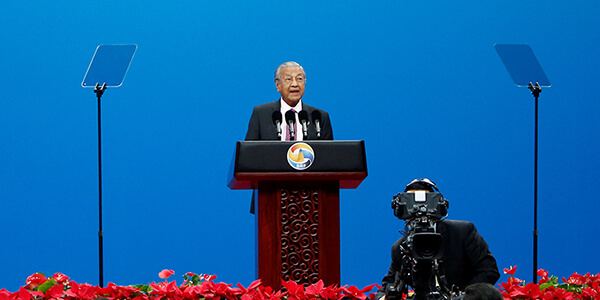 |
The Belt and Road Initiative and the US “Indo-Pacific” Strategy
Liu Zongyi
“The BRI is mainly a geo-economic initiative, but there are many ongoing debates on its geo-economic and geostrategic implications. One can observe the geo-economic aspects of the initiative in the report delivered at the 19th National Congress of the Communist Party of China in October 2017, from which we understand that the BRI has implications that will affect not only the region but global dynamics as well.”
“The BRI faces a lot of difficulties, hence a high possibility of failure. The United States recognizes that the promotion of the BRI is strongly constrained by geopolitical factors; Japan, India, and European countries have boycotted the BRI to different degrees. Although China is the largest contributor to many BRI projects, it is not the only important actor. European investments and the Asian Development Bank as well as other multilateral financial institutions play a major role in Eurasia and Asia respectively. Therefore, political factors amongst the BRI countries may constrain the implementation of the BRI and its economic performance. In such case, many large infrastructure projects would not be able to deliver on time and on budget, thus making it difficult to obtain the promised benefits ? which in consequence will impair China’s reputation.”
|
|
|
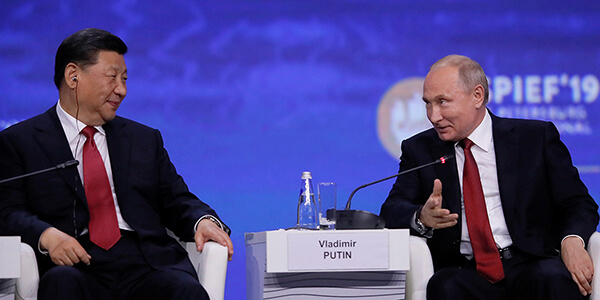 |
Enhanced Sino-Russian Partnership: Implications for the EU
Eleonora Tafuro Ambrosetti
“At the political-diplomatic level, China and Russia have long been battling against what they define as US unilateralism and the Western normative interference. The two countries converge on some key values (such as multi-polarity, the right to adopt “homegrown” values as opposed to “universal” ones, and sovereign stability in the face of Western interference and democracy-promoted policies).”
“There are several reasons that can explain Russia’s pivot towards China, one being the reality that global economic power itself is shifting towards the East. The size of the European economy (at current market prices) was more than six times larger than China’s in 2005, but today’s China boasts an economy worth 11.4 trillion euros against 15.9 trillion euros for the EU-28 (or 13.5 trillion euros for the EU-27). While the attractiveness of Beijing’s economy is certainly a pull factor, economic reasons are not enough to explain the enhanced partnership between China and Russia.”
|
|
|
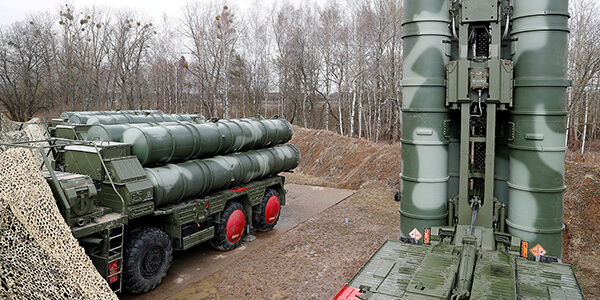 |
Deconstructing the Turkey, US, NATO, Russia Relationship: What Now?
Mark Meirowitz
“While it did appear that Turkey had weathered the storm resulting from its acquisition of the S-400 air and missile defense system from Russia, the situation now appears to be muddy and perhaps even ominous. Turkey even seemed to remain a solid member of NATO despite the procurement of the S-400 missile defense system, which has been described as a “Russian intelligence collection platform,” its termination from the American F-35 Joint Strike Fighter program, and the fact that the S-400 system is not inter-operable with NATO ordnance. Although statements from the US Congress condemning Turkey for acquiring the S-400 were very harsh, the reactions from President Trump and the NATO Secretary General were quite conciliatory. President Trump, in effect, supported Turkey’s contention that it had to acquire the S-400 because the US wouldn’t sell Patriot missiles to Turkey, even going so far as blaming President Obama for failing to sell the Patriots to Turkey”
“In the long-term, there has to be a better way to manage the Turkey-US bilateral relationship, rather than jolting from crisis to crisis. At the present time however, it is incumbent on the US, Turkey and NATO, to reach a rapprochement and understanding on the immediate issues to avoid a cataclysm. The future of the region and the world depend on this.”
|
|
|
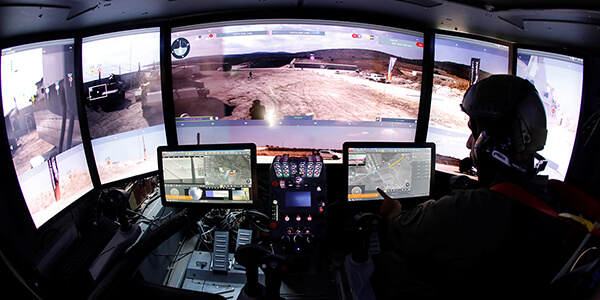 |
Can Technology Bolster Europe’s Transatlantic Weakness?
Petr Bohácek
“The main danger to the transatlantic partnership is not Donald Trump but the vaporization of the partnership’s previous underlining logic and mutual utility with the shifting geopolitical and warfare dynamics of the 21st century. While addressing the challenges mentioned above, the role of the technological monopoly shifting from public to private actors as well as emerging new technologies in transforming the military realm need to be considered. There are two areas – space and artificial intelligence – of new technology that not only have a significant strategic value but are driven by private actor innovations, and therefore, can benefit civilian society.”
“The transition to militarizing private civilian technology from military-developed technology for civilian use in the 20th century resulted in the technological and scientific monopoly to shift from public to private actors today. With the private sector taking lead, the quality of life can be a tool to attract talent and workforce for research, innovation, and new dynamic fields. On that note, Europe has things to offer, such as unique governance and set regulations aimed at curbing big tech monopolies to ensure fair competition and privacy rights.”
|
|
|
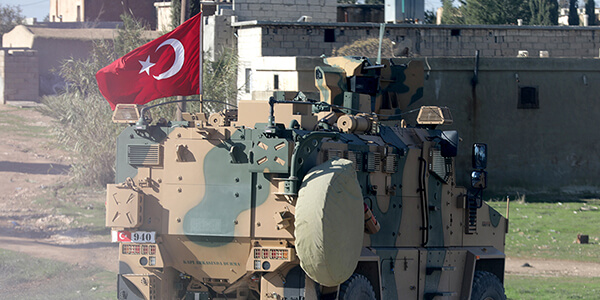 |
Turkey’s Military Power in the 2000s: An Assessment for Measurement Methods
Ali Balcı & Cahit Çelik
“Estimating military power is particularly difficult because of weak measurement methods. Traditional studies are heavily based on data on defense expenditure and the number of military personnel. Recent studies increasingly use David Singer’s Correlates of War (CoW) dataset for the assessment of Turkey’s material power.”
“Unlike Singer’s CoW dataset, the net military capacity and the ratio of the indigenous defense industry to meet domestic military needs clearly shows that there is a striking improvement in Turkey’s military capacity in the 2000s. More important than regional initiatives, a significant increase in military capacity during the 2000s has reshuffled Turkey’s place and role in the US-led order. As a result, Turkey started to demand greater autonomy in its relations with regional actors and challenged the rules and dictates of the US. Since militarily powerful countries are less willing to trade their own autonomy for external protection, Turkey’s changing military capacity will have a dramatic impact on the relations between Ankara and Washington.”
|
|
|
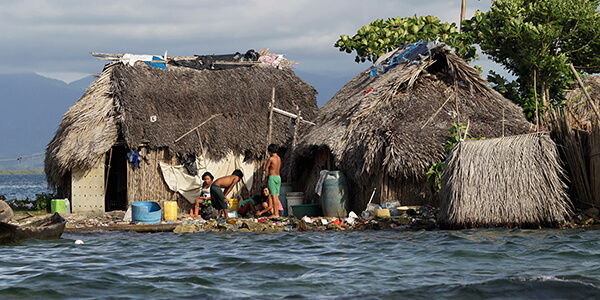 |
The Impacts of Climate Change on Human Security
Barış Karapınar
“Greenhouse gas (GHG) emissions, which are the primary cause of global warming, continue to increase by around two percent every year. The energy and transport industry, as well as agriculture and forestry, are the main sources of GHG emissions. Such a rapid increase in the concentration of GHGs is directly and unequivocally attributed to anthropogenic activities. Although the world has experienced unprecedented levels of economic development over the last century, it will now bear the burden of greenhouse emissions that have accumulated and remained in the atmosphere as a result of burning fossil fuels.”
“The new generation demands political leaders take the historical responsibility of providing them with a more sustainable future than the bleak prospect of ‘business as usual.’ They realize that the necessary actions are clear and feasible, and that the cost of inaction is colossal ? hence it is essential that the domestic and international political order respond by driving change in the right direction. Should they fail, climate change will be one of the biggest ? if not the biggest ? source of inequality in the 21st century.”
|
|
|
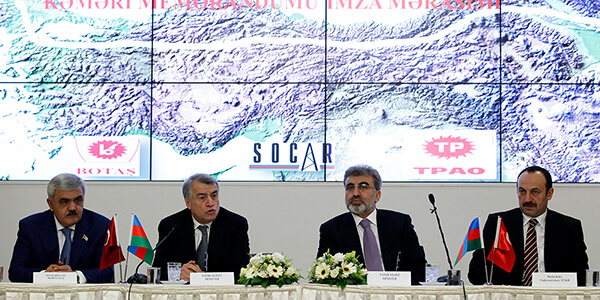 |
The Strong Energy Bridge between Turkey and Azerbaijan
Zaur Gahramanov
“In recent years, mutual investments, bilateral economic relations, and trade volume has increased considerably. Businesspeople and experts often highlight the reciprocal investments made by Turkey and Azerbaijan in a multitude of industries across both countries. The agreements between the two countries regarding strategic partnerships and mutual aid have carried these bilateral relations onto a different level in the field of economy, particularly in the energy sector in Turkey.”
“With the overarching aim to provide energy security to Turkey and Azerbaijan, SOCAR Turkey aims to be an important player in the Turkish natural gas market and work in the common interest of both countries. Thanks to the acquisitions of Bursagaz and Kayserigaz, the company’s internal consumption portfolio will expand and SOCAR will handle nearly eight percent of the Turkish natural gas market. Bursagaz, Kayserigaz, and Enervis will be crucial links for the integration chain that SOCAR intends to create in the field of natural gas.”
|
|
|
 |
Global Energy Transformation
Değer Saygın & Dolf Gielen
“The rapid decline in renewable energy costs, progress in energy efficiency, widespread electrification of heating and transport sectors, and technological breakthroughs have so far been the leading results of efforts to transform the global energy sector. In addition, renewables have been globally recognized as a mainstream energy source. Enabling solutions are also becoming economically viable, thus allowing renewables to be integrated into the grid.”
“Taking early action is crucial to maximizing the benefits of this energy transition, limiting the planet’s temperature rise to 2oC, and reducing the risk of stranded assets. In terms of costs, the most important impact of energy transition is the reduction of harmful external effects, notably for public health and climate. The benefits of energy transition will exceed the cost by 3-7 times in the year 2050, largely in the form of reduced health impacts. With early action, the estimated stranded assets until 2050 could be limited at around 12 trillion dollars.”
|
|
|
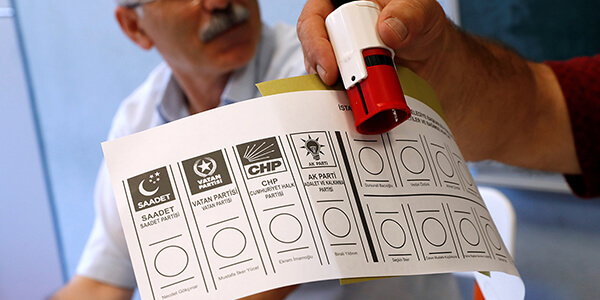 |
2019 Municipal Elections in Turkey: A Democratic Earthquake
Ödül Celep
“The 2019 municipal elections were a political and electoral earthquake for both the incumbent actors in Turkey and President Erdoğan. For the first time in 25 years, the ruling right-wing conservative AKP lost the municipal elections decisively while the center-left CHP swept the major provinces and won Istanbul.”
“Nevertheless, what a political earthquake is for President Erdoğan and Bahçeli could signify a larger ‘democratic earthquake,’ in terms of Turkey re-routing with democracy. This municipal election brings a new opportunity for Turkey’s normalization and democratization, a rapprochement among left-wing and right-wing actors, between secular and religious actors, as well as with government and opposition actors. All actors, including opposition parties, will benefit immensely if Turkey chooses to loosen some of the political restrictions, and embrace a program of democratization and the rule of law.”
|
|
|
Interested in contributing an op-ed to TPQ's blog?
For guidelines click here. |
|
|
The Premium Corporate Sponsor of this Issue
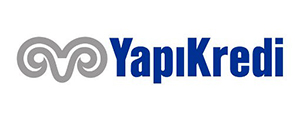 |
|
|
The Issue’s Sponsors |
 |
 |
|
|
 |
Phone: +90 212 621 4442 - +90 212 621 9258 Fax: +90 212 531 8718 info@turkishpolicy.com
Click to unsubscribe |
|
|




























